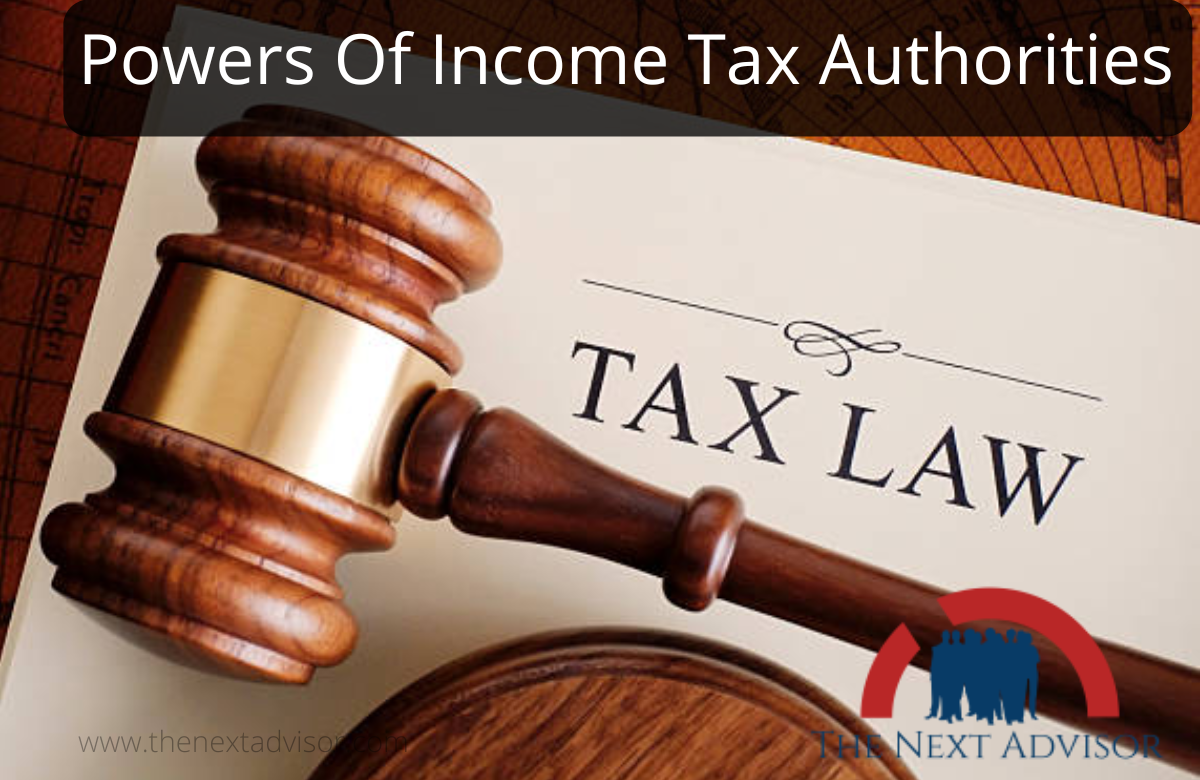There are different powers for income tax authorities. Let us see the different powers of income tax authorities.
INTRODUCTION
The Government of India has constituted a number of authorities to execute the Income Tax Act and to control the Income Tax Department efficiently. The Central Board of Direct Taxes is the supreme body in the direct tax set – up. It has to perform several statutory functions under the various acts and it is responsible for the formulation and implementation of different policies relating to direct taxes administration. The Board consists of a Chairman and six members.
APPOINTMENT OF INCOME TAX AUTHORITIES
The Central Government can appoint those persons who it thinks are fit to become Income Tax Authorities. The Central Government can authorize the Board or a Director-General, a Chief Commissioner or a Commissioner or a Director to appoint income tax authorities below the ranks of a Deputy Commissioner or Assistant Commissioner, According to the rules and regulations of the Central Government controlling the conditions of such posts.
POWERS OF INCOME TAX AUTHORITIES
Powers of Income-tax authorities relating to Discovery, Production of evidence, etc: The Assessing Officer, The Joint Commissioner, the Chief Commissioner, or the Commissioner has the powers as are provided in a court under the code of Civil Procedure, 1908 when trying to sue for the following matters :
( a ) discovery and inspection ;
( b ) to enforce any person for attendance, and examine him on oath
( c ) issuing commissions; and
( d ) compelling the production of books of account and other documents.
Power of Search and Seizure: Today it is not hidden from income tax authorities that people evade tax and keep unaccounted assets. When the prosecution fails to prevent tax evasion, the department has to take actions like search and seizure.
POWERS OF INCOME TAX AUTHORITIES
Power to Call for Information: The Commissioner The Assessing Officer or the Joint Commissioner may for the purpose of this Act :
( a ) can call any firm to provide him with a return of the addresses and names of partners of the firm and their shares ;
( b ) can ask any Hindu Undivided Family to provide him with the return of the addresses and names of members of the family and the manager ;
( c ) can ask any person who is a trustee, guardian, or an agent to deliver him with the return of the names of persons for or of whom he is an agent, trustee, or guardian and their addresses ;
( d ) can ask any person, dealer, agent, or broker concerned in the management of stock or any commodity exchange to provide a statement of the addresses and names of all the persons to whom the Exchange or he has paid any sum relating to the transfer of assets or the exchange has received any such sum with the particulars of all such payments and receipts.
POWERS OF INCOME TAX AUTHORITIES
Power of Survey: The term ‘ survey ‘ is not defined by the Income Tax Act. According to the meaning of dictionary ‘ survey ‘ means casting of eyes or mind over something, an inspection of something, etc. An Income Tax authority can have a survey for the purpose of this Act.
The objectives of conducting Income Tax surveys are:
• To discover new assessees;
• To collect useful information for the purpose of assessment;
• To verify that the assessee who claims not to maintain any books of accounts is in – fact maintaining the books;
• To check whether the books are maintained, and reflect the correct state of affairs.
POWERS OF INCOME TAX AUTHORITIES
Collection of Information: For the purpose of collection of information that may be useful for any purpose, the Income-tax authority can enter any building or place within the limits of the area assigned to such authority, or any place or building occupied by any person in respect of whom he exercises jurisdiction.
Power relating to Discovery, Production of evidence, etc: The Assessing Officer, The Joint Commissioner, the Chief Commissioner, or the Commissioner has the powers as are provided in a court under the code of Civil Procedure, 1908 when trying to sue for the following matters :
( a ) discovery and inspection ;
( b ) to enforce any person for attendance, and examine him on oath
( c ) issuing commissions, and
( d ) compelling the production of books of account and other documents.
Power of Search and Seizure: Today it is not hidden from income tax authorities that people evade tax and keep unaccounted assets. When the prosecution fails to prevent tax evasion, the department has to take actions like search and seizure.

























